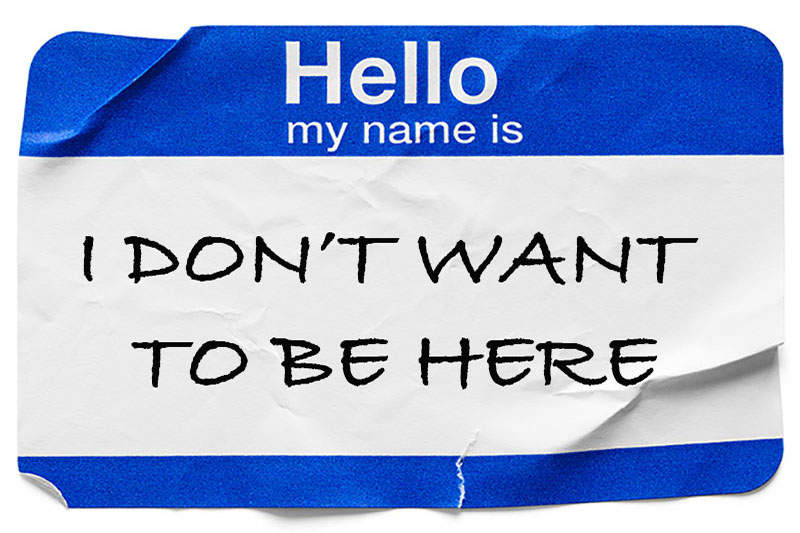Business Development
Become a Captivating Conversationalist: Finding Your Networking Nirvana
Everyone is not a natural-born talker. And that is never more evident than when you attend a networking event. Some people can have animated conversations with a flowerpot, and others break out in a cold sweat just thinking about a room full of people they've never met.

Let’s step back and consider the importance of networking events. Everyone is there for the same purpose: catching up with existing contacts, growing their spheres of influence, looking for prospective new business, and maybe making a new friend. And everyone wants a successful experience and a few new contacts to add to the Rolodex.
Whether it’s a bar association event or the industry organization you’re actively involved with, you need to prepare. Prepare? I just need to show up! And that’s where we get it all wrong. If you’re a trial lawyer, would you ever show up to court unprepared? So why not apply the same principle to a networking event?
The Stories Set You Apart
One of our mantras at Rain is that we help our clients tell their stories. The same idea goes hand in hand with networking events. It’s an opportunity for you to engage with people and share stories. Those stories run the gamut – they can be work or personal stories, but they should allow people a window into who you are and what it would be like to work with you.
But it’s hard to think about those stories on the fly. I routinely coach attorneys to engage in at least 15 minutes of quiet to gather their thoughts. Think about the conversations that will occur at the event and prepare your stories to tell. Jot down notes on paper if that would help; prepare in a way that is comfortable to you.
Expect the…Expected
When meeting someone new, we can assume people will start conversations with the vanilla, “So what do you do?” or “What’s new in your world” type questions. Those are the softballs, yet they provide an opportunity to elicit “that’s interesting, tell me more” as a response.
What do you do? This can be a pivotal moment in a networking conversation. Instead of “I’m a lawyer,” there is much more to say. If you’re an employment attorney, your answer could be, “I help small and medium-sized business owners minimize risk and protect their most important asset – employees.” With this response, you’ve identified your target client type and shown how you care about your work. A more dynamic response also inevitably leads to more questions, which presents additional opportunities for you to connect.
What’s new? Ah, this is a catch-all, nothing question that, with thought, can further a conversation. “My New Year’s resolution was to learn a foreign language, so I am taking French lessons.” “I love my work as a commercial real estate attorney, and I’ve started teaching a course to law students. Sharing my knowledge with a new generation of attorneys is thrilling.”
What Not To Do During a Networking Conversation…Or Ever
Avoid conversation killers at all costs. Frankly, eliminate them from your lexicon FOREVER.
- Livin’ the dream.
- Same old, same old.
- Ugh, I’m so busy.
What do all of these have in common? There is nowhere to go next. The sarcasm also conveys a negative connotation. Let’s look at helpful alternatives that tell your story and invite more questions to keep the conversation going.
Instead of “livin’ the dream,” try, “Although much of my work has been structuring M&A deals, the exploding area of cannabis law has caught my eye. It’s a dynamic area of law with so many interesting components.” You’ve noted your primary practice focus and a target client base, but you’ve also demonstrated that your professional interests evolve, opening the door for a give-and-take discussion.
Let’s tackle “same old, same old” next. You absolutely can do better with a personal story. “I’ve always wanted a dog, but the timing wasn’t right. Now that my kids are older, I recently rescued a German Shepherd and have enrolled us in obedience classes.”
And the dreaded “I’m so busy” reply. If you’re meeting someone new, this is a terrible thing to say. It implies poor time management and that you may not have the capacity for more work. Instead, share an interesting work story! “This new case I’m working on is incredibly fascinating. It’s a highly nuanced issue that I haven’t seen before. Although it’s been time-consuming, I’m enjoying the challenge!” You don’t have to give away specifics, but it’s another way to show passion for your work and create continuing conversation.
Wrap It Up
Last but certainly not least, remember to ask questions of the people you meet! While engaging in dialogue during a networking conversation is crucial, it’s equally essential to demonstrate active listening and genuine interest in the other person’s perspective. Also, remember that you’re evaluating whether this person is a fit for your network. Ask return questions that will elicit more than “yes” or “no” responses. Set a realistic goal to have two or three meaningful conversations at an event. More than that is unrealistic and would likely involve superficial discourse.
And what to do when you realize it’s time to end the conversation? Tell the person you’ve greatly enjoyed the discussion, offer your business card, and ask for theirs, then inquire if there is someone you can introduce them to. The offer of helping facilitate an introduction is an elegant way to end the conversation and extricate yourself.
There are no shortcuts to building relationships. It takes time and effort. As with all things, preparation is key. Investing 15 minutes to gather your thoughts and stories will yield more productive attendance at an event.
Rain consultants routinely work with lawyers to help them maximize participation in organizations, including networking event preparation. We’d love to help you if this is an area where one-on-one or small-group coaching makes sense.


